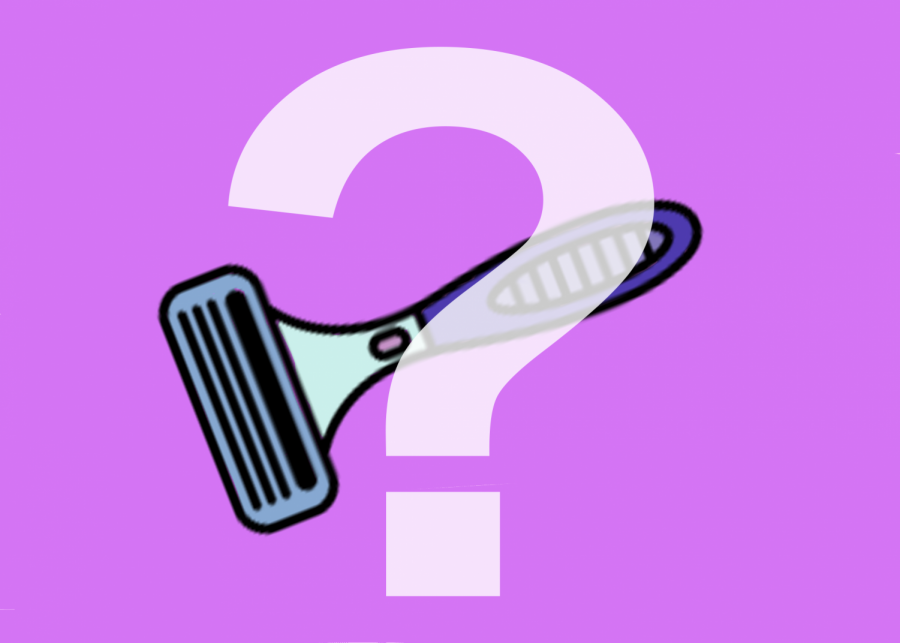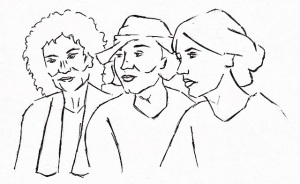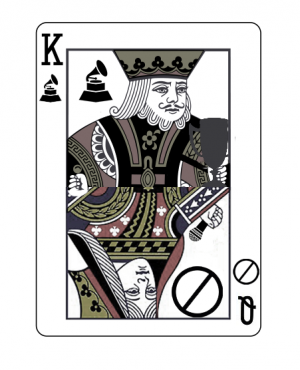The normalization of body hair is important, but social media is doing it wrong
The social media body hair acceptance movement fails to recognize the complexities between groups of women.
May 28, 2021
Body hair. Everyone has it. But, it’s still taboo when on feminine bodies. While people are generally more accepting of grown out body hair than they were in 2018, the social media body positivity movement might not be the real cause of this.
People on social media are much more toxic compared to people in real life because they’re behind screens, but in general, social media has recently become much more accepting of people with body hair. Rather than the targeted posts highlighting that women grew their body hair out, many women have been growing out their body hair and going about their social media lives.
The primary goal of the body hair movement is to create acceptance surrounding women growing out their body hair. This is a good goal in itself, because body hair is stigmatized on women, and women should be able to have the choice of whether or not to grow out their body hair.
While there is nothing wrong with this goal, the social media body hair movement centers able-bodied, thin white women. Not shaving is lauded as a good feminist thing to do (which is also a problem because a feminist doesn’t have to only make “feminist choices” to be a feminist) The end goal of this movement is to bring acceptance to people choosing what they want to do with their bodies, regardless of societal pressures.
The way this movement is advertised is much more surface level than what the actual meaning should be. It became a way for women to show that they are feminists who don’t conform to beauty standards.
But, social movements such as this one aren’t so simple. Growing out body hair isn’t the best way to stop conforming to a beauty standard. For example, women of color are already not seen as the beauty standard. As user @promise_elise on TikTok puts it, [liberation of women comes from not conforming to the patriarchy’s standard of beauty] for white women… because I’m already not the beauty standard. I’m dark skin. I’m a Black dark skin girl with 4c short colored hair, I’m already not the beauty standard.”
It’s still difficult for women of color who do want to defy beauty standards to be accepted doing so.
The user @badgalriyriy on TikTok says “Elements of ourselves [referencing south asian women], such as our body hair, our jaw lines or facial structure are all seen as masculine just because they don’t fit into the mold [media and society has] created as the perfect Eurocentric woman.”
South asian women are masculinized because of their body hair, but if they were to remove it, they would still be masculinized for their other features. While being masculine would be defying feminine beauty standards, the fact that south asian women are not willingly trying to do this is the issue here. Especially since the movement is headed by white women, they are the only group of women more likely to be accepted with body hair.
If, for example, women of color were at the forefront of the movement, there could be a possibility that change could actually occur, because of the theory that states when the most oppressed group gets liberation, there is liberation for all.
Without abolishing the beauty standard for all, what is the social media body hair acceptance movement really going to accomplish? The normalization of body hair on a body that already adhered to eurocentric beauty standards?
The social media movement lacks the diverse experience many different groups of women go through, and tries to reduce it to a singular solution; an end all be all for how to try to “punch up” at what everyone has been conditioned to perceive as beautiful, which is smooth silky skin. For women that do not already fit what is considered feminine in society, it makes sense that they would not participate in this movement, because it wouldn’t benefit them.
While there are definitely women who don’t fit the modern beauty standard that participate (since having or not having body hair shouldn’t dictate someone’s femininity), it should not be demanded that they do for this reason.
This brings up another problem: How would this movement really be helping if it is only effective if a small group of the total population can truly participate? The social media body hair acceptance movement is just scratching the surface of a much larger issue, women’s liberation, without taking into account the different perspectives that different women have in relation to how they want to be feminists.
The social media body hair acceptance movement fails to understand and deal with the complexities that its message has for different groups of women. It is really hard to try to dismantle beauty standards without questioning why they are the way they are, because it turns into a generalized call to action that does not include everyone, making it a non-viable form of activism for everyone.
Telling people that it to be a feminist is to not shave, and telling people that they aren’t being good feminists for choosing to shave isn’t doing any good either. It’s your body, you should decide whether you want to shave or not to shave.





Samuel Minioza • Jun 13, 2021 at 11:33 am
Interesting critique of the way some feminist movements capitalize and exploit other social acceptance movements in a malicious way, I hadn’t though about the masculinization part that would discourage many non white women from being on board with the movement towards acceptance of body hair. Very informative 🙂